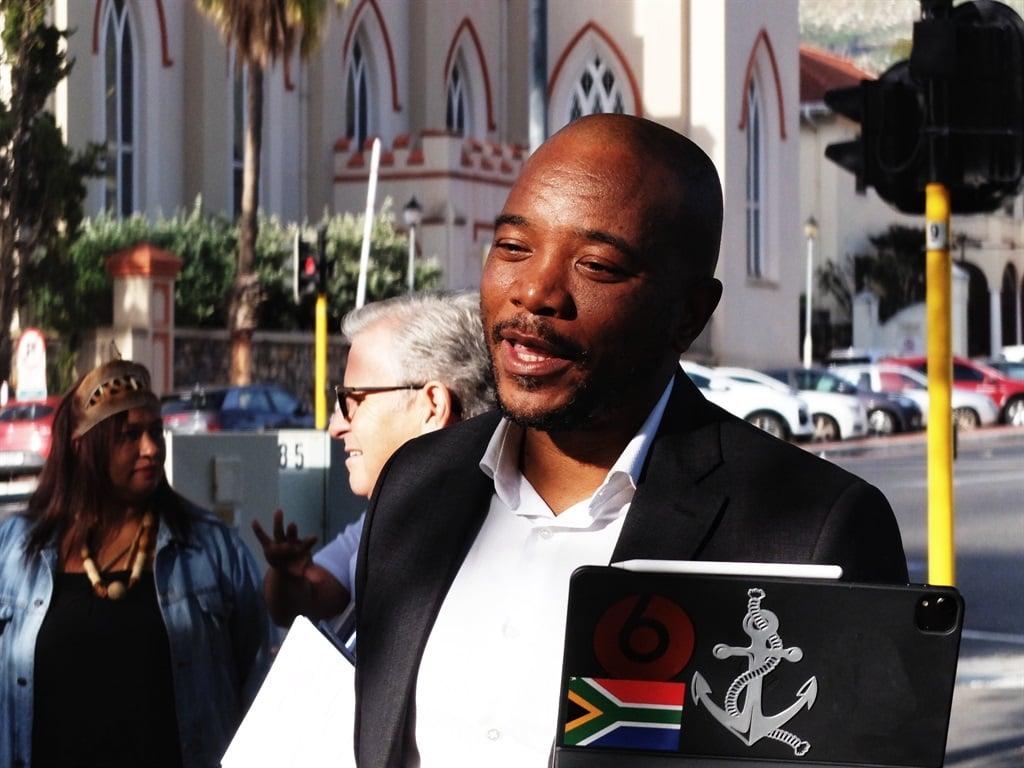Africa-Press – South-Africa. The Electoral Amendment Act, signed into law by President Cyril Ramaphosa on Monday, “rigs the game” in favour of bigger political parties; hence a group of civil society organisations will challenge it in the Constitutional Court.
When the Constitutional Court handed down the judgment that led to the amendment of the Electoral Act to allow people not affiliated with political parties to contest provincial and national elections, it was met with much hope from civil society.
As the legislation slowly began to take shape, this hope evaporated, and the amendments pushed through by Home Affairs Minister Aaron Motsoaledi, backed by the ANC in Parliament, met much criticism.
On Wednesday, two days after the Presidency announced that the bill had been enacted, BOSA (Build One South Africa) leader Mmusi Maimane, chairperson of the Independent Candidate Association, Michael Louis, and Khoi princess Chantal Revell of the New Nation Movement, announced that they intended to lodge an application for direct access to the Constitutional Court on 1 May to challenge the Electoral Amendment Act.
BOSA says in an accompanying statement that this decision has been reached based on principle and pragmatism.
“From a pragmatic point of view, if next year’s elections go ahead under this new law, it will very possibly bring about a constitutional crisis whereby the results of the elections are contested in court after the fact. Any party unhappy with the results of the elections can then challenge them based on the validity of the law that governed the elections. South Africa cannot afford such a predicament,” reads the statement from Mudzuli Rakhivhane, BOSA’s head of candidate recruitment.
“From a principled point of view, it is clear that this new law is badly written, legally flawed and in our view invalid and unconstitutional insofar as it makes it nearly impossible for independents to stand alone, win elections and ultimately represent their communities. It is in conflict with the constitutional principles of ‘in general, proportional representation’ as well as that ‘one vote is equal to one seat’.”
A court challenge to the bill was on the cards since October last year. Asked on Monday about the inevitable prospect of a court challenge to the act, the IEC, already pressed for time to organise next year’s election, expressed concern over such an outcome.
“For as long as there is an extended period of uncertainty, it will imperil the quality of an election, ultimately. And that is what we don’t desire,” said chief elections officer Sy Mamabolo.
Maimane blames Parliament, Ramaphosa and the Department of Home Affairs for the truncated timeline ahead of the election, given that the bill was only passed by Parliament in February and signed by Ramaphosa about six weeks later.
The department only introduced the bill to Parliament in January last year, 18 months after the Constitutional Court’s ruling, and Parliament twice successfully applied to the apex court for deadline extensions.
“They also allowed for the president to abuse the extension, by signing the bill post facto, and ultimately saying they are only leaving the IEC a limited amount of time that this issue can be ventilated,” said Maimane.
“By the time we arrive at elections in May 2024, the rules are fair, they are constitutional, and there can be no challenge to the elections.
“We’ve got to act with urgency and ensure that the ConCourt can hear us.
“We have seen a government kick this matter down the road for now, what is not a few months, for a number of years,” said Maimane.
“So at some point, you have to say we have to fight it, that it ends.”
Louis said: “This bill, now act, has to be challenged, and the reason why is that you can predict that if any of the political parties do not get the result that they want, the first thing that they are going to do, is they’re going to challenge the Electoral Act and say the act is unconstitutional. And that’s a bigger crisis.”
He says that is why civil society believes it has no option but to contest the act, which they believe is unconstitutional.
READ | How to become an independent candidate for next year’s election
Louis believes that they have a “clear-cut case”.
“The unfortunate thing is, we really hoped that the president used his section 79 powers to go directly to the ConCourt, because then we as civil society didn’t have to go and first do an application for direct access, which takes another three months,” said Louis.
He said they don’t expect a judgment before October.
“But to be honest with you, I do not believe it should inhibit the IEC to do their work,” he said, explaining that their concerns are all “post-election issues – how the seats are going to be divided”.
He said civil society is very concerned that there is a free and fair election and will do everything in its power to work with the IEC.
They expect up to 40 civil society organisations to join their quest to have the Constitutional Court declare the act unconstitutional.
The Presidency’s statement on Monday that announced that Ramaphosa signed the bill into law, stated: “President Ramaphosa is satisfied that the processes leading to the passing of the bill followed all legislative procedures as envisaged by the constitution and that the substance of the bill will pass constitutional scrutiny.”
For More News And Analysis About South-Africa Follow Africa-Press






